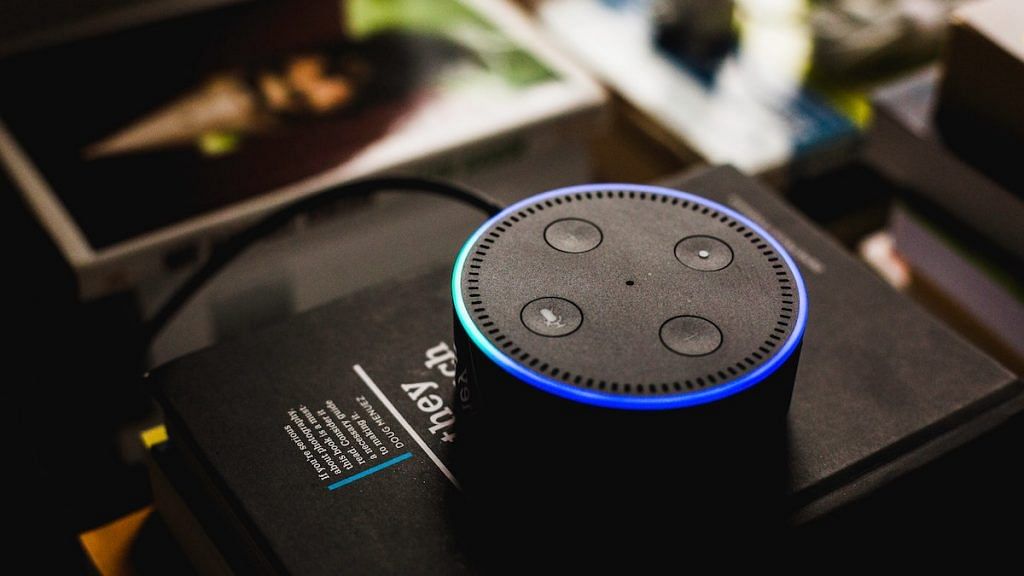Chennai: “Alexa, show me Banarasi sarees” or “Alexa, tell me about the best deals” — these could be the commands that matter this Diwali.
As micro, small and medium enterprises (MSMEs) work hard to plot their revival, the lack of consumer demand and scepticism around safely stepping out to shop could dampen the spirits of millions of them in India.
While no one doubts that e-commerce could be the vehicle that safely connects consumers with sellers, the differentiator is big tech. The ability of voice commands to throw up options for the consumers to make their selection will benefit both small and medium businesses (SMBs) and the consumers.
MSMEs in India should be encouraged by the story of e-commerce in India and capitalise on the benefits of online selling. As we stand more than a month away from Diwali, the MSMEs should look at equipping themselves appropriately on not just selling, but also creating awareness about their products and brands. From that lens, this Diwali does belong to ‘voice’, which truly could shape the shopping experience.
Also read:Amazon comes up with new tools to address Alexa privacy woes
Impact of Covid-19
We are all familiar with the impact of the Covid-19 pandemic on MSMEs in India.
A number of surveys conducted by industry bodies during the early days of the lockdown reported that about 35-40 per cent of India’s MSMEs faced the threat of closure. This is a cause for concern as these enterprises employ nearly 11 crore people.
Early restrictions on movement due the lockdowns and the persistent fear of contracting Covid-19 have prompted more Indians to stay indoors and buy online through e-commerce platforms.
This shift in behaviour can be observed in the data from different industry bodies and organisations. A recent survey by the Retailers’ Association of India reported that while retail sales have started to recover across India, they are still 52 per cent less than the same time last year. An even worrying number was reported by the Confederation of All India Traders, which stated that retailers across India have suffered a loss of about Rs 19 lakh crore in the last five months.
E-commerce resilient to pandemic
At the same time, the e-commerce sector has been able to establish itself as a stable marketplace resilient to the Covid-19 pandemic. The fundamentals of any e-commerce model are naturally designed to withstand the tremors of a pandemic.
A two-day online sale event on 1 October 2019, organised by Amazon India, reported participation from over 91,000 MSME sellers across India. Over 4,000 MSME sellers saw sales of Rs 10 lakh or more, while about 209 other sellers clocked sales worth a crore each.
While these numbers sound delightful to an SMB, it is path-breaking that millions of users took support of Amazon’s Alexa for shopping. Consumers used voice commands for guiding them to products, best deals, new launches and even bill payments. These early indicators point towards higher sales, which should be leveraged by the SMBs to increase revenue during Diwali.
Looking at this trend of voice commands and searches, it would be prudent for an MSME to digitise its business to attract more footfall. The festival economy encourages Indians across the country to spend significant amounts of money on buying new appliances, textiles and other gifts for themselves and their loved ones. This year, the festive season will be more important than ever before to MSMEs and retailers.
The e-commerce sector has provided significant ease to buyers across India amid the pandemic, which helped retain spending patterns while also ensuring health and safety. As consumers look to be safe and yet continue with the purchases, SMBs should readily cash in on the opportunity.
What govt can do
At the same time, the Union government should explore ways to make the transition to online selling easier for Indian MSMEs. To begin with, the government should look at creating parity in taxation for online and offline sellers. One of the key issues for the Union government is to do away with the mandatory GST registration requirement for online sellers — these should be kept on par with those selling offline, i.e. paying GST only after crossing a revenue threshold of Rs 40 lakh.
India had been inching towards creating a truly digital economy. This pandemic can become fundamental in catalysing India’s shift towards a more digital life and digital commerce. If nothing else, just from media coverage, it appears customers ordered 50 times more products using Amazon’s Alexa on Echo devices during Amazon Prime Day sale, compared to an average day.
It’s high time for MSMEs to welcome Alexa as a business ambassador. “Alexa, show me Banarasi sarees” could change their lives!
The writer is an advocate at the Madras High Court, with over two and a half decades of experience. He has been associated with some of the landmark adjudications across India’s legal and regulatory space. He maintains a rights-based advocacy approach and undertakes issues that are of larger public interest.
Also read: How smart assistants are becoming gatekeepers to the digital economy
